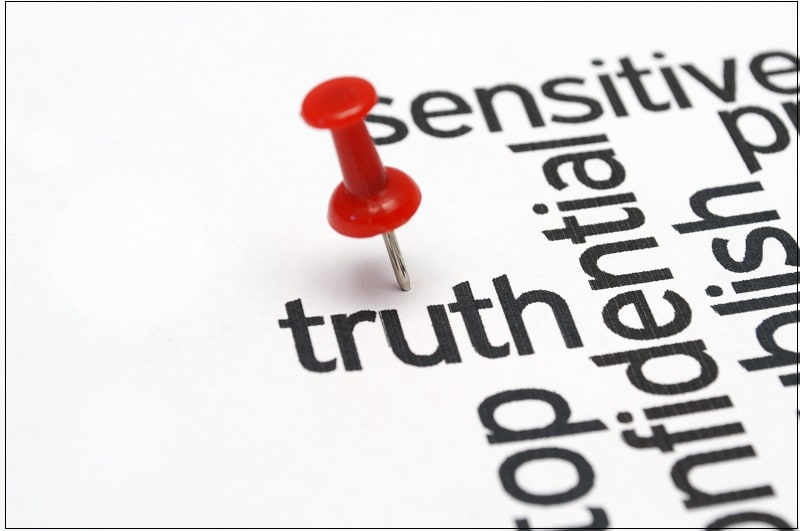
A lengthy article by Jonathan Haidt dealing with the growing conflict over the proper goal or end of the academy ran here in full on October 23. It was neither an original article of ours nor a reprint published with permission. It should have run–and appears now–as an excerpt referring readers back to its original site, Heterodox Academy. We regret the error.—Editor
Aristotle often evaluated a thing with respect to its “telos” – its purpose, end, or goal. The telos of a knife is to cut. The telos of a physician is health or healing. What is the telos of university?
The most obvious answer is “truth” –- the word appears on so many university crests.  But increasingly, many of America’s top universities are embracing social justice as their telos, or as a second and equal telos. But can any institution or profession have two teloses (or teloi)? What happens if they conflict?
But increasingly, many of America’s top universities are embracing social justice as their telos, or as a second and equal telos. But can any institution or profession have two teloses (or teloi)? What happens if they conflict?
As a social psychologist who studies morality, I have watched these two teloses come into conflict increasingly often during my 30 years in the academy. The conflicts seemed manageable in the 1990s. But the intensity of conflict has grown since then, at the same time as the political diversity of the professoriate was plummeting, and at the same time as American cross-partisan hostility was rising. I believe the conflict reached its boiling point in the fall of 2015 when student protesters at 80 universities demanded that their universities make much greater and more explicit commitments to social justice, often including mandatory courses and training for everyone in social justice perspectives and content.
Now that many university presidents have agreed to implement many of the demands, I believe that the conflict between truth and social justice is likely to become unmanageable. Universities will have to choose, and be explicit about their choice so that potential students and faculty recruits can make an informed choice. Universities that try to honor both will face increasing incoherence and internal conflict.
QET’s point is absolutely on target.
The problem is not really the collision of Social Justice telos with Collegiate telos…rather it is the fact that so-called ‘Social Justice’ is an absolutely hollow concept which is empty of all telos.
It is a term which means nothing, least of all anything which relates in any way whatsoever to actual justice. And the ‘social’ + ‘justice’ mashup creates only a frankenstein amalgam which somehow has come to drive the bizarre understanding that social/economic/cultural qualities must somehow be ‘justly’ balanced across national populations according to some sort of demographic algorithm.
Those who embrace this mythical beast point to any number of social ‘inequities’: you earn more than I do….they earn more than we do…. people who look like me go to prison more frequently than people who look like you…. you have more education than I do….you live in bigger house….have more assets…. your brother is a Big Deal, mine is a bum… my wife is prettier, yours is wealthy… the list is endless. The Social Justice Warrior underlines these inequities and calls them injustice, undeserved, the result of the game being fixed… a function of systemic prejudice, and active unfairness. He thereby demands just recompense…a bigger slice of life’s candybar.
But such an approach – more typically seen in the behavior of most two-year-olds – takes as a given 1) that somehow Life Really Should Be Fair (I guess their parents never told them)… and 2) that Unequal outcomes are always a function of Unfair Actions. Needless to say, neither of these fantasies is true.
Life is not fair…bad things happen to good people…good things happen to bad people… the good die young….and Mr. Potter builds Potterville (and George Bailey moves out of town). And unequal outcomes? They are first and foremost related to unequal talents, unequal ambitions, unequal motivations, unequal dispositions, unequal personalities, unequal genetic baskets (handed us at birth) – couple all that with unequal opportunities (good & bad luck) and unequal, imbalanced outcomes are a guaranteed inevitability.
If I worked twice as hard as Kobe ever did, would I be a major star in the NBA? Not even close. Not even close to being close. Bill Gates and I both enjoy computers – why is he so so so so so much wealthier than me? All of your cousins are in jail and none of mine are…on the other hand, all of your cousins committed felony crimes and mine did not. I guess that’s not fair. Brad Pitt and I both grew up in small towns – how did he manage to marry Angelina?
But beyond the silliness of any supposition that life’s outcomes SHOULD be equal because “all men and women are created equal” (ignore the fact that this means only before God & the Law)…there is the double-down silliness associated with the mechanisms designed to rebalance these inequities. Should half of my cousins go to jail…and half of your felon cousins be set free? Are Kobe, Bill, and Brad going to distribute their wealth until they are equal to me? Should I distribute mine until I am equal to you? Should all wealth be distributed until we all reach that common equilibrium point (like water in a tepid tub?).
And let’s say we did that? Tomorrow Kobe would go out and play in the NBA once again and earn millions of dollars once again. Is that fair? Brad would just go out and make another movie. That can’t be fair. Perhaps we can control what they can and can’t do? Perhaps we can handicap the advantaged and move the start & finish lines to boost the disadvantaged?
And there we welcome Handicapper General, Diana Moon Glampers and her tireless efforts to make dear Harrison Bergeron just like everyone else:
“THE YEAR WAS 2081, and everybody was finally equal. They weren’t only equal before God and the law. They were equal every which way. Nobody was smarter than anybody else. Nobody was better looking than anybody else. Nobody was
stronger or quicker than anybody else. All this equality was due to the 211th, 212th, and 213 th Amendments to the Constitution, and to the unceasing vigilance of agents of the United States Handicapper General.”
When Universities embrace the Golem which is Social Justice, they don’t simply crash this new telos into what had been their eternal pursuit of truth, they abandon Truth entirely. Obviously time for more sensitivity training.
Haidt would be doing the Cause a great favor, he might even single-handedly change the outcome of the contest, by changing its terms. More particularly, one of its terms. The phrase “social justice” has, sadly, been repeated for so long that it has ceased to attract notice or criticism. I understand that it serves as a convenient name with which to identify a category, a more or less determinate set of beliefs and attitudes, in a “debate” or “dialectic” being waged furiously in our recent politics.
But the by-now mindless repetition of this phrase has had, I fear, the effect of conceding the concept of “justice” to this category. But that is where the debate should center. That is what should be debated. Whether or not these beliefs and attitudes can properly be called “justice” at all, regardless of what qualifier is used.
It is my contention that what the promoters of so-called social justice promote is not, in fact, justice, according to any legitimate meaning of that word. At least, this is what we should be debating, rather than conceding the idea to one side by thoughtless repetition of a phrase. So perhaps Haidt could coin a new, more appropriate term to use as a convenient label for those beliefs and attitudes.
You make a good point, but you don’t offer an alternative to the term “social justice.”
Let me help you out. Social justice is a euphemism — just as the term “affirmative action” is a euphemism (for state sanctioned race-based discrimination).
Social justice is a euphemism for cultural Marxism.
There. I helped you cut to the chase. (Pardon me if I sound a bit impatient with you, but your comment has a real hand-wringing quality to it. Just say what you mean. In other words, don’t be afraid to grasp the truth, and proclaim it!)